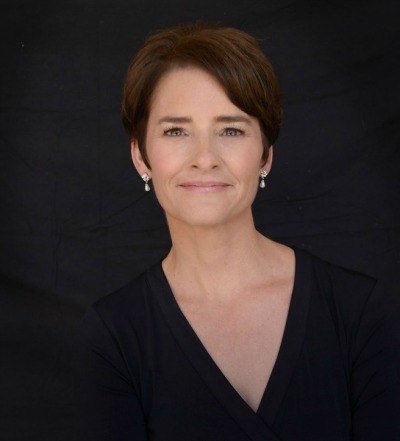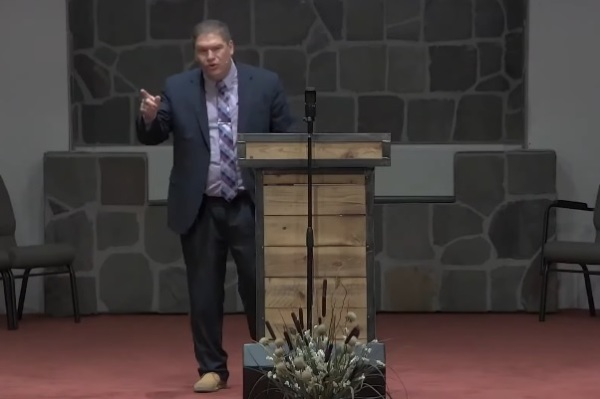Q Conference 2015: A Mixed and Confusing Discussion on Homosexual Issues and the Church

The gay dilemma is arguably the most pressing cultural issue facing the church. So, it didn't surprise me that the issue took center stage at last week's Q Conference in Boston, which gathers 1,300 top Christian leaders to discuss cultural issues.
What did surprise me, though, was the complete absence of even the suggestion that sexuality could be redeemed or transformed. Every speaker referenced sexual orientation as an immutable trait beyond the scope of redemption. And tragically, no speaker really offered a compelling view of orthodox Christian sexuality. Instead, author Debra Hirsch's talk on "Redeeming Sex" offered more titillation than truth, comparing heaven to "a continuous orgasm" and relaying questions like: "I asked Jesus into my heart, but how do I get him into my (sex organ)?"
Hirsch's talk was the first of three talks on Thursday that specifically addressed sexuality and/or homosexuality. Hirsch criticized the church for failing to address human sexuality properly and urged it to develop a robust theology of sexuality. Unfortunately, though, Hirsch didn't offer any solid theology. Instead, she delivered a mix of pop psychology and opinion. She suggested there is "social sexuality" and "genital sexuality"; "multiple masculinities and femininities"; and then spoke of the need to bring sexuality and spirituality together – again, offering only vague definitions of both without any grounding of her assertions in Scripture.
I couldn't help but long for someone like popular theologian Christopher West to follow Hirsch and fill the vacuum on sexuality she had created. Drawing on Scripture and established theological tradition, West explains how uniting male and female in marriage wondrously expresses the mystery of the life and love of the Trinity – and how marriage is the primary metaphor revealing the divine-human drama. (After all, Scripture begins with the marriage of Adam and Eve and ends with the wedding feast of the Lamb.)
Unfortunately, though, Q attenders weren't exposed to any of this rich theology. Instead, what followed was a discussion on the "The Church's Gay Dilemma" between Matthew Vines and Julie Rodgers. Vines is the author of God and the Gay Christian and founder of the Reformation Project, which seeks to train Christians to support and affirm LGTBQ people. Rodgers is a gay, celibate Christian whose hiring to work in the chaplain's office at Wheaton College last year sparked controversy.
Vines reiterated the same arguments that he does in his book. One, that condemnation of same-sex relationships can't be a "good tree," so to speak, because it yields the "bad fruit" of brokenness and pain among same-sex attracted people. Vines also asserted that monogamous same-sex relationships weren't "on the radar of the biblical writers." As result, their seemingly wholesale condemnation of homosexuality needs to be re-interpreted as only condemning homosexual sex outside of committed monogamous relationships.
Rodgers, though she identifies as gay, disagreed with Vines and affirmed the sexual boundaries expressed in Scripture as good: "I just trust that the boundaries God put around sexuality are for our flourishing." She also winsomely responded to Vines' argument that the biblical writers were simply ignorant when it came to same-sex monogamous relationships. Her quip, "I don't think God was like, 'Whoa, where did they come from? Gays, who knew?'" elicited a big laugh from the audience.
Though the discussion was positive, it clearly assumed that "gayness" was beyond the scope of redemption: celibacy was offered as the only reasonable option for people with same-sex attraction who wanted to honor a traditional Christian sexual ethic. In fact, Q Founder Gabe Lyons, who served as moderator, stated that only a small percentage of people have experienced any change in their sexuality. He then referenced Alan Chambers, the former president of the now-shuttered ex-gay ministry Exodus International. Chambers famously stated, "99.9 percent of people I met through Exodus' ministries had not experienced a change in orientation."
Interestingly, though, the only substantive study of people who have attempted changing their sexual orientation tells a different story. That study by Dr. Stanton Jones and Dr. Mark Yarhouse showed that 23% of those who tried to change reported success in the form of "conversion" to heterosexual orientation and functioning. Another 30% reported they were able to live chastely and had "disidentified" themselves from homosexual orientation.
Unfortunately, these facts are rarely discussed in Christian forums like Q anymore. Instead, if one even hints that he believes sexuality is within the scope of God's ability to redeem, he's often marginalized as an alleged proponent reparative therapy. I have never believed in reparative therapy, but I do believe in the transformative power of the gospel. So, this narrative that sexuality is a fixed and immutable trait is difficult for me to swallow. It also strikes me as ironic that those, like Lyons and Rodgers, who uphold an orthodox Christian view of sexuality because they believe Scripture trumps experience, rely solely on experience to discredit the possibility of sexual redemption. Nowhere can this view be found in Scripture.
Unfortunately, this view that homosexuality is an immutable trait was again presented in the next Q talk on sexuality – a discussion between ethicist David Gushee and Pastor Dan Kimball on whether the church's historic teaching on sexuality is reliable. Kimball held that it is reliable. But, Gushee asserted that Christians have been "wrong on (the gay issue) as we have been wrong on some issues in the past."
Then Gushee alleged that condemnation of homosexuality "creates a disastrous box," which gays "cannot escape." He called the established Christian understanding of sexuality a "toxic body of tradition that bears bad fruit," delivering "harm, rather than care." At this point, Lyons interrupted, suggesting that the "definition of love is up for debate right now." Is the "truest love," Lyons asked, encouraging same-sex attracted people to embrace and express their attraction? Or, do we accept the traditional Christian narrative – that calling people to forsake those tendencies will "lead to their flourishing"?
This really is the central question in the church's debate on this issue right now. And honestly, if Christians are going to forsake sexual transformation of any kind as a possibility for same-sex attracted people, then the future they ask same-sex attracted people to embrace is pretty bleak. I can see why many same-sex-attracted Christians would be reluctant to embrace it. Of course, God certainly does give some people the gift of celibacy. And, I appreciate that people like Julie Rodgers are willing to walk that difficult path and pay the high cost of discipleship if that's what it takes.
But, to consider this way normative for people with same-sex attraction, as the speakers at Q suggested, doesn't seem consistent with Scripture. Where in Scripture does it teach that sexuality is somehow exempt from the transformative power of the Spirit? What hope, then, is there for porn addicted believers or habitual adulterers or sex addicts? Is the abundant life Jesus promised merely white-knuckling your way until you die?
Romans, chapter 8 says the "Spirit of him who raised Jesus from the dead" is living in us. Certainly, if the Spirit can raise the dead, He can radically change every aspect of our lives, including our sexuality. I'm sad I didn't hear this perspective at Q. Unfortunately, the belief that sexual transformation is possible has become so marginalized and politically incorrect that few Christian leaders dare even speak it. This saddens me because I think our church and society desperately need an empowered gospel, not the impotent one so prevalent in many churches today. If we lose our faith in radical transformation, then what gospel are we truly advancing?






















